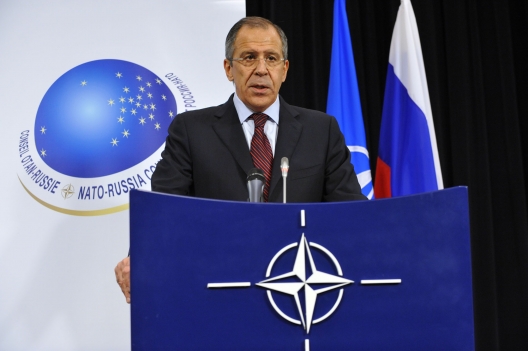 Russia’s comments on Ukraine are “pure fantasy,” include “ludicrous” claims, and show “either ignorance or dishonesty.” Moscow is also engaging in “misrepresentations of the facts” and “baseless attacks.”
Russia’s comments on Ukraine are “pure fantasy,” include “ludicrous” claims, and show “either ignorance or dishonesty.” Moscow is also engaging in “misrepresentations of the facts” and “baseless attacks.”
Those aren’t the comments of a fiery activist organization, angry Ukrainian leader or speechifying U.S. senator. They’re part of a four-page statement emailed Wednesday by the North Atlantic Treaty Organization.
The crisis in Ukraine is prompting NATO, an organization founded in 1949 to prevent Soviet tanks from rolling into Western Europe, to engage in a newly intense battle of information using the Internet and social media. NATO leaders worry that the Kremlin has become effective and deft at making its case online and elsewhere, and they feel compelled to respond.
One notable example is the blog of Philip Breedlove, NATO’s top military commander. In a much-noted post in April called “Who are the men behind the masks?” Gen. Breedlove went into unusual detail rebutting Russian claims that its operatives were not among the separatist forces in eastern Ukraine.
Image: Russian Foreign Minister Sergei Lavrov, Dec. 04, 2009 (photo: NATO)
